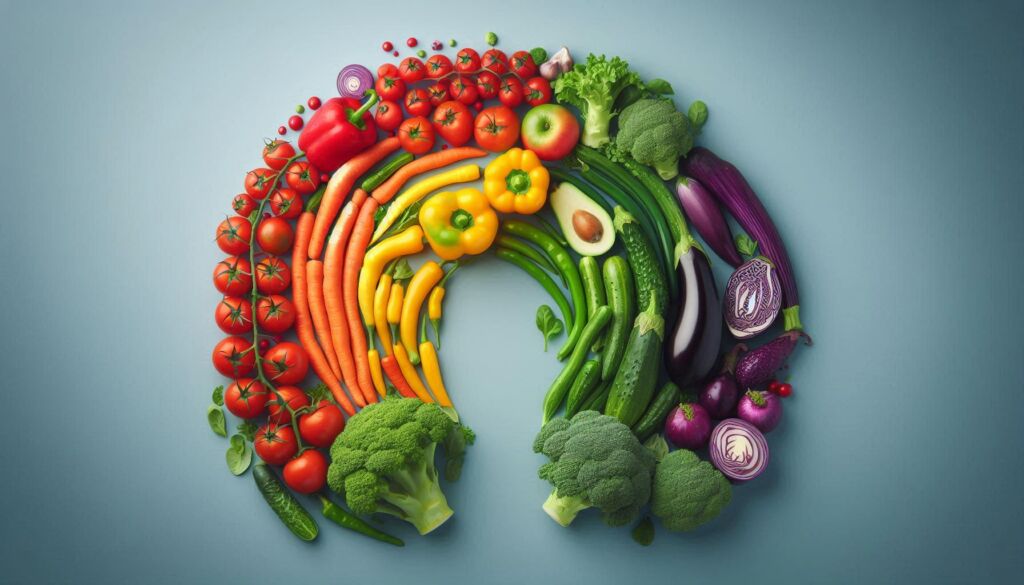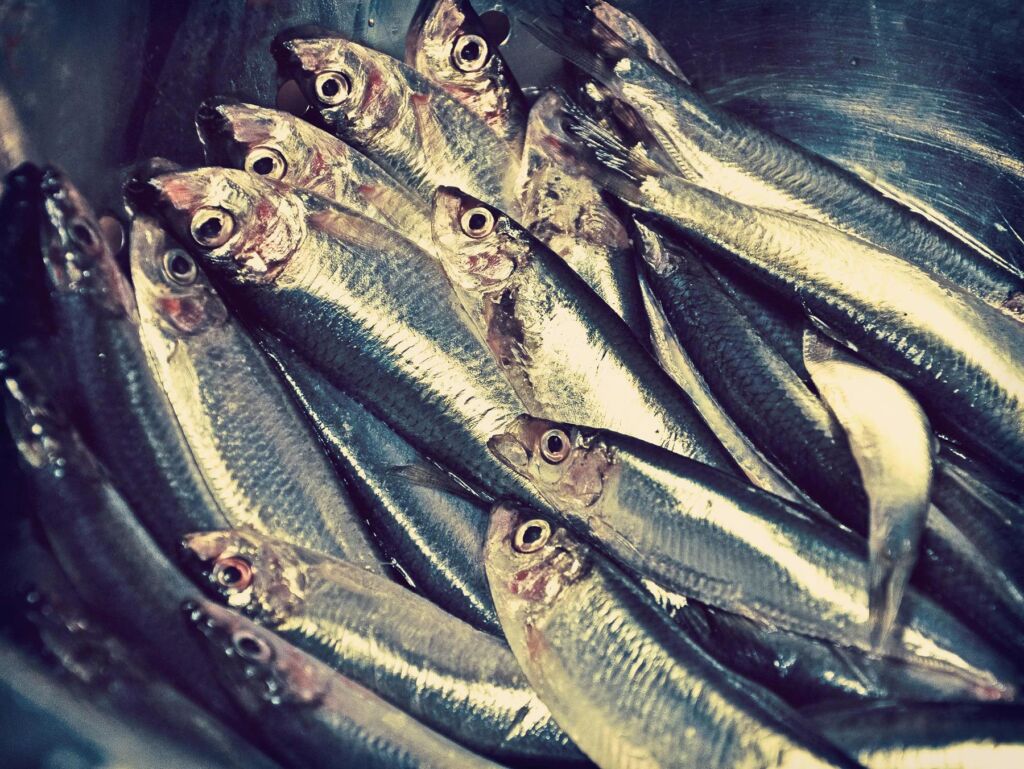
Menopause has a huge impact not only on the women going through this major life change but also on their families, who can experience the fallout associated with mood swings, fatigue, and other debilitating symptoms. For this health feature, experts from the Health and Food Supplements Information Service provide an overview of the report, highlighting which health-critical nutrients can help make this pivotal life stage easier.
The report[1], packed with the latest real-world research[2] commissioned by the Health and Food Supplements Information Service – MENOPAUSE NUTRITION: CHALLENGES AND OPPORTUNITIES – puts this important subject, until recently only whispered about in corners, firmly under the spotlight.
As HSIS expert panel member and women’s health specialist Dr Catherine Hood explains, “The HSIS report specifically highlights the importance of diet and nutrition for healthy ageing and menopause, along with the stark reality that many women don’t know which nutrients they need to support themselves through this pivotal life stage.
“Indeed, over a quarter (27%) of research respondents said they didn’t even think about whether they needed to plug any nutrient gaps during the menopause years.”
The report helps to tackle this awareness gap, providing expert diet and nutrition tips to help women boost their health and wellbeing through the important menopause years.
“The latest HSIS report can’t come soon enough,” says HSIS dietitian Dr Carrie Ruxton, adding, “There is still a desperate need for accessible, evidence-based resources on menopause and the way it impacts women’s health and lives. The Women’s Health Strategy, published by the UK Government last year, showed that 91% of those who responded to the consultation don’t feel they have enough information about the menopause.”[3]
On top of that, the National Diet and Nutritional Survey (NDNS) reveals worrying statistics relating to nutrient shortfalls among women aged 19 to 64 years, including:
- Calcium – nearly one in 10 (9%) aren’t achieving the recommended intake
- Vitamin D – 15% are deficient
- Potassium (important for blood pressure control) – a quarter (24%) aren’t achieving the target.
The HSIS report shows that one in five women (20%) is doing nothing to plug these nutrient gaps. Over a quarter (27%) simply don’t think about it, while 23% think they don’t need the nutrients. A similar number (22%) believe they get everything they need from their diet.
However, GP Dr Nisa Aslam, a member of the HSIS expert panel, has a word of caution for these women. She says, “A woman’s gut microbiome changes with menopause, and our bodies become less efficient at absorbing nutrients. If you don’t make a conscious effort to ensure your diet is meeting all your nutritional needs or top up with supplementary nutrients, there is a very real risk that you will fail to achieve the recommended intakes.”
Dr Nisa Aslam’s words align with the Government’s Women’s Health Strategy, which identified six health conditions where women’s health services need improvement. Four of these are directly linked to diet and nutrition, particularly regarding menopause. They include:
- Vitamin deficiencies
- Osteoporosis and other musculoskeletal conditions
- Heart disease and stroke
- Type 2 diabetes
Dr Carrie Ruxton explains, “Looking at women aged 19 to 64 years, the NDNS shows that:
- 8% don’t achieve the minimum requirement for vitamin A
- 13% are missing out on riboflavin (vitamin B2)
- 25% fall short of the target for iron.
“It’s hardly surprising that so many women are lacking important nutrients. Busy lifestyles, eating on the run, weight-loss diets, ready meals, and diets which exclude key food groups all increase the risk of nutrient gaps.
“And the odds of having a poor diet go up even more when you factor in typical symptoms of perimenopause and menopause – the tiredness, brain fog and mood swings – which can influence food choices and how much energy women have for shopping and cooking.
“Taking a multivitamin and multimineral together with an omega-3 supplement are simple and convenient ways to address these gaps and protect against shortfalls at a time when your body needs all the nutritional support it can get.”

So, which nutrients should women be focusing on?
Don’t neglect vitamin D
Vitamin D is both a nutrient and a hormone, and this may help to explain its pivotal role in health and immunity, particularly around menopause and beyond.[4]
Anything below 25nmol/L in the blood is considered a clinical deficiency, and between 25 and 50nmol/L is classed as insufficiency[5]. Deficiency is common in the UK because 90% of our vitamin D is synthesised from sunlight on the skin. But from October to March, there isn’t enough UVB radiation for this to happen.[6]
HSIS nutritionist Dr Pamela Mason says, “Not surprisingly, shortfalls are common, and 15% of women aged 19 to 64 have such low levels they are clinically deficient — which puts them at much greater risk of cardiovascular disease, type 2 diabetes and osteoporosis.[7],[8],[9]”
Dr Carrie Ruxton says, “The Chief Medical Officers advise that women who are older, spend a lot of time indoors, have darker skin or cover up for religious reasons are at high risk of deficiency. That’s why they should consider topping up with a supplement of 10 mcg a day all year round.”
Dr Nisa Aslam adds, “Given the importance of vitamin D for bone health and disease prevention, it’s common sense for every woman to take a vitamin D supplement all year round.”

Fish out the omega-3s
Omega-3 fatty acids deliver a wide range of health benefits that are important at all life stages but really come into their own during menopause.
HSIS public health nutritionist Dr Emma Derbyshire says, “Omega-3 protects against heart disease, which becomes more of a risk as oestrogen declines, and it damps down inflammation, which is now known to be a factor in multiple health problems.[10]
“Eating oily fish such as herring, mackerel and salmon, which are good sources of omega-3s, has been shown to reduce heart disease risk. The British Dietetic Association recommends eating 140g of oily fish a week.[11]
“Since not everyone enjoys eating oily fish, taking an omega-3 supplement, or a multivitamin and multimineral which includes this important fatty acid, is a sensible step — particularly for women who are postmenopausal or currently struggling with menopause symptoms. Vegan options are also available.”
Get the B vitamin habit
B vitamins support the nervous system and protect against cardiovascular disease, stroke and cognitive decline. For example, one review of vitamins in menopause concluded their role “cannot be overestimated in the menopause”.[12]
Dr Catherine Hood says, “Apart from supporting the nervous system, which can help to combat the brain fog, poor concentration, and low mood many women experience around menopause, B-group vitamins promote healthy skin and energy metabolism.[13]”
Catch up on your calcium
Calcium supports bone health and supplementation has been shown to slow down loss of bone density after menopause.[14] Given this well-known benefit, it’s understandable that the HSIS research found it’s the nutrient women are most likely to associate with benefits during menopause, with 63% aware of its specific importance at this time.
But it’s not just bones that benefit from calcium. Studies show this mineral reduces high blood pressure, which is a major contributor to strokes and heart disease. For example, a Cochrane review of 20 trials with 3,140 participants found that a supplement of 1,000mg a day reduced systolic blood pressure by 1.37 mmHg and diastolic pressure by 1.45 mmHg, while 1,500mg daily lowered readings by 1.05 mmHg and 2.79 mmHg respectively.
Gut support with probiotics
Dr Pamela Mason comments, “This is a relatively field of research, but there is already a lot of evidence to show a broad range of menopause health benefits associated with probiotics. As a health professional, you need to see a plausible mode of action and a measurable and repeatable effect — and we are seeing both in the latest studies around probiotics and the relief of menopause symptoms.”
Eat the rainbow
HSIS panel member Dr Catherine Hood says, “A healthy diet providing all the key nutrients can mitigate certain risks, including heart disease, stroke, dementia and osteoporosis. Several of these menopause health heroes also help to combat fatigue, poor concentration, insomnia and other symptoms associated with perimenopause and menopause.”
Dr Pamela Mason adds, “Instinctively, we have always recognised the need for a wide variety of these botanicals, with advice to ‘eat a rainbow’ or ‘add colour to your plate’. But researchers are now unpicking the potential of specific botanical nutrients.”

Botanicals which have been shown to provide benefits during menopause include:
- Bilberry – rich in easy-to-absorb anti-inflammatory and antioxidant anthocyanins and has been shown to improve insulin sensitivity and lower cholesterol[15]
- Cranberry – rich in proanthocyanidins, which are antioxidants that may help prevent urinary tract infections (UTI), which become increasingly common after menopause,[16] as well as reducing unhealthy LDL cholesterol levels[17]
- Garlic – packed with a plant chemical called allicin, associated with reduced risk of several health problems, including cardiovascular and metabolic disease, hardening of the arteries, high cholesterol and high blood pressure — all become increasingly common after menopause[18]
- Ginger – shown to reduce the intensity of hot flushes and night sweats[19]
- Ginseng – shown to reduce hot flushes and improves quality of life in menopausal women[20]
Last word
HSIS dietitian Dr Carrie Ruxton says, “The National Diet and Nutrition Survey shows us that many women begin their menopause journey with inadequate intakes of many key nutrients in their diets and still have these ongoing shortfalls when they are postmenopausal.
“A multivitamin and multimineral will help to plug these gaps, but it’s worth considering a top-up of specific nutrients such as vitamin D, calcium, B-vitamins and omega-3 fatty acids, and investigating botanical nutrients which can target specific menopause challenges.”
References:
- [1] MENOPAUSE NUTRITION: CHALLENGES AND OPPORTUNITIES; Edition 1; GP – Dr Nisa Aslam; dietitian – Dr Carrie Ruxton; nutritionists – Dr Emma Derbyshire and Dr Pamela Mason; women’s health specialist, Dr Catherine Hood
- [2] A Perspectus Global omnibus survey of 1,526 women aged 18 to 60 years: Data on file.
- [3] https://www.gov.uk/government/publications/womens-health-strategy-for-england/womens-health-strategy-for-england#menopause
- [4] https://www.hsph.harvard.edu/nutritionsource/vitamin-d/
- [5] https://www.bmj.com/content/340/bmj.b5664
- [6] _vitd_dec_2010.pdf
- [7] NDNS data year 9-11
- [8] https://www.hsph.harvard.edu/nutritionsource/vitamin-d/
- [9] https://www.ncbi.nlm.nih.gov/pmc/articles/PMC6513299/
- [10] https://www.hsph.harvard.edu/nutritionsource/what-should-you-eat/fats-and-cholesterol/types-of-fat/omega-3-fats/
- [11] https://www.bda.uk.com/uploads/assets/e8fa989a-6845-4864-a87427c78b5d65d7/Omega-3-food-fact-sheet.pdf
- [12] https://www.ncbi.nlm.nih.gov/pmc/articles/PMC6372850/
- [13] https://www.nhs.uk/conditions/vitamins-and-minerals/vitamin-b/
- [14] https://asbmr.onlinelibrary.wiley.com/doi/full/10.1002/jbm4.10246
- [15] https://www.frontiersin.org/articles/10.3389/fphar.2022.909914/full
- [16] https://www.ncbi.nlm.nih.gov/pmc/articles/PMC8412316/
- [17] https://www.clinicalnutritionjournal.com/article/S0261-5614(19)30158-X/fulltext
- [18] https://www.ncbi.nlm.nih.gov/pmc/articles/PMC139960/
- [19] https://clinicaltrials.gov/ct2/show/NCT05499793
- [20] https://www.sciencedirect.com/science/article/pii/S1744388122000834
For more information on the above, please visit www.hsis.org.
![]()




You must be logged in to post a comment.